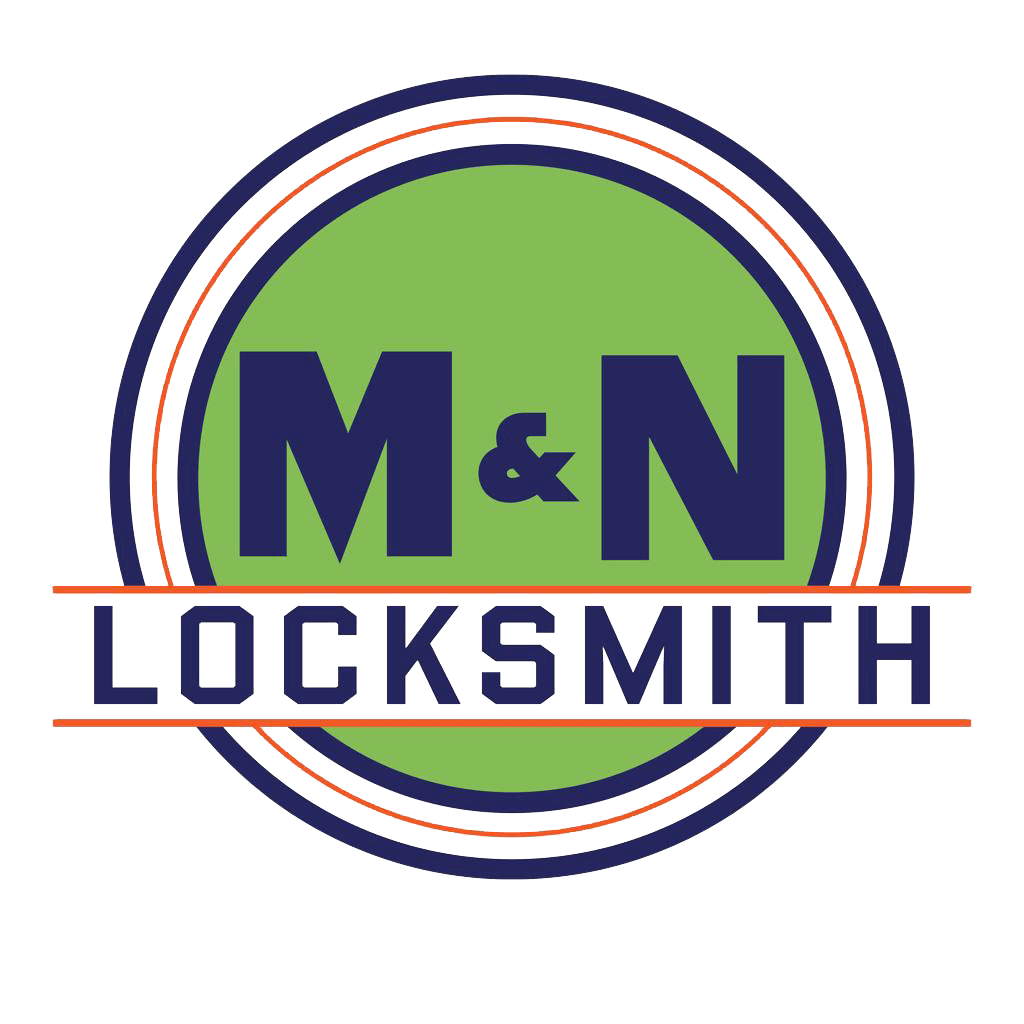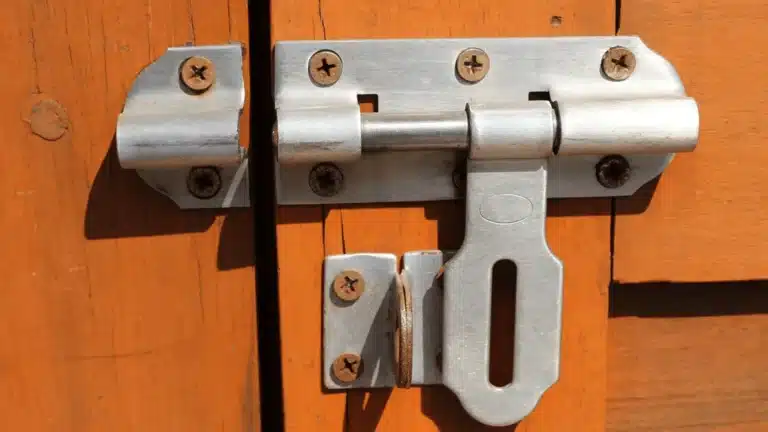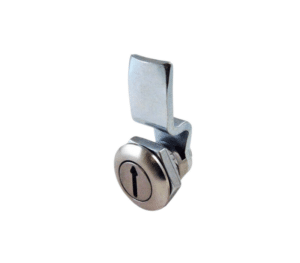When it comes to securing our homes and ensuring the safety of our loved ones, having a reliable locking mechanism is crucial. Latches have been used for centuries and have evolved to become an essential part of our lives.
A latch is a mechanical device that is used to secure a door or gate. It is typically made up of a metal bar or bolt that slides into a strike plate or catch to keep the door or gate closed. Latches are different from locks in that they do not require a key to operate. Instead, they can be opened or closed by simply pushing or pulling on the door or gate. Latches are commonly found in residential homes, commercial buildings, and even vehicles.
In this blog article, you should expect the following;
- How A Latch Works
- Types of Latch
- Components of A Latch
- Common Latch Lock Problems
- Benefits of Hiring A Professional Locksmith For Installation
- Choosing the Right Latch For Your Needs
- Maintenance And Troubleshooting
How a latch works
A latch is a very simple but effective device. When you close the door, the metal rod or bolt of the latch slides into the strike plate or catch to hold it securely in place. The design of the latch is such that it will not allow opening until someone deliberately releases it; this gives basic security by preventing people who are not supposed to access it from coming in. For one to open the latch, he/she must use enough force on either side of the door which would push back the metal bar or bolt from its lock plate or its catch thus allowing the gate or door to swing open.
Types of latches
There are different types of latch each having a specific purpose. Common types include:
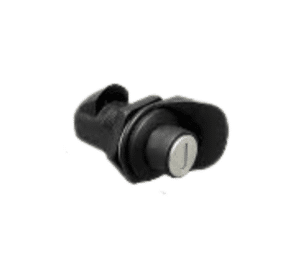
Flat Latch
A Flat Latch, also known as a flat bolt latch is a type of latch mechanism that is commonly employed in door locks. It is built to sit flush with the surface of the door to give it a smooth look. Given their minimalist design, flat latches are often found in modern door hardware and this makes them suitable for different types of doors such as interior and exterior doors.
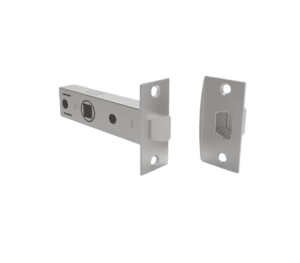
Tubular Latch
Tubular Latch is one type of latch mechanism that is used mostly with internal doors. It consists of a hollow cylindrical body with a spring-loaded latch bolt. Tubular latches are designed to be inset into the thickness of the door so that they can make it tidy and unobtrusive. These are normally used together with lever handles and come in different sizes for handling different door thicknesses.
Cam Latch
The type of latch mechanism widely used on cabinets, enclosures, and access panels is the camlatch. It uses rotating cam mechanisms for secure locking and easy access. Cam latches are popular because their design is simple but effective thus making them suitable for many applications where fast secure latching or locking down is required; various configurations including key-locking and tool-operated versions exist.
Components of a latch
Understanding what constitutes various types of locks can help one make proper choices when deciding which ones suit bests his/her needs. Mainly, these devices usually consist of:
- Bolt: This part extends inside (into) through the strike plate or catch hence holding the gate tightly together once closed.
- Strike plate: The Bolt catches onto this part which is situated on the door frame only when closing. Without this component, one can never have a secured latch.
- Latch mechanism: The working of the latch is facilitated by this part. It comprises springs, levers, and other moving parts that enable the bolt to either go back or forward.
- Latch handle or knob: Finally, when you hear about a latch you usually think of its handle or knob where people use their hands on it to move this lock up, down, left, or right. When used for a long time it should not be broken and properly held.
Importance of a latch lock
These devices are useful in maintaining security within our homes thereby protecting our properties as well. They secure unauthorized access to basic levels and thus may also discourage intruders in some instances. Latch locks are crucially important especially for external doors and gates because they normally act as the first line of defense that we have against burglars.
In addition to allowing for home entry/exit in a hassle-free manner without having to carry around keys, these locks are affordable and hence highly preferable by many homeowners. Moreover, compared to other complex systems built-in costs associated with such types of locks are relatively low and hence easily reached by most families.
Common latch lock problems
While often quite reliable; now and then further attention becomes necessary about latch locks that malfunction slightly. Several commonly experienced issues linked with these latches include:
- Misalignment: As time passes, the latch mechanism and strike plate may become misaligned and hence it makes it hard to push or pull on the door or gate.
- Sticky: The stickiness of a latch might be due to dirt, debris, or rust that has accumulated within the system. This can make the operation of the latch difficult.
- Loose strike plate: Once the strike plate is loose, the security of the door or gate could be compromised because the latch may not engage fully.
- Worn-out components: Latch locks are used regularly which means that their components will wear out with time leading to decreased functionality and potential security issues.
Benefits of hiring a professional locksmith
It is always better to get services from a professional locksmith when installing latches. Here are some benefits of turning to a professional:
- Expertise: Professional locksmiths know how latches should be installed so that they work properly and this ensures accurate fitting.
- Quality workmanship: They take pride in their work and give clients high-quality installations that will withstand time tests.
- Security: Get your mind settled by hiring someone who does locking systems as his profession; you rest assured that your lock was fixed well thus giving minimum chances of burglary cases happening in your home.
- Time and cost savings: Eventually you will save money and time if you hire an expert; they know what they do and have everything needed for a perfect job. Therefore, mistakes are reduced completely hence avoiding unnecessary costs and too much money in your pocket.
Choosing the right latch for your needs
To achieve maximum security and serviceability, one should select an appropriate catch. Below are some of these:
- Type of door or gate: Consider doors’ size and material weight before making any decision because different types require different catches such as mortise locks & deadbolt locks amongst others
- Level of security: if you need a more secure mode then think about having deadbolts latches and other additional features.
- Aesthetics: Latches come in various designs and finishes, choose one that matches the overall look of your door or gate.
- Durability: Go for catches made from materials that will not be affected by elements and can withstand wear out.
Maintenance and Troubleshooting
For a latch to last as long as it is expected to, doing regular maintenance coupled with troubleshooting becomes of utmost importance. Pick these tricks for example:
Cleaning
To clean latches and their components, use a soft cloth and mild detergent regularly to remove dirt, rust, and debris. Do not ever apply harsh chemicals or abrasive materials which may corrode the latch surface.
Lubrication
Apply some oil on moving parts like bolts and latching devices within a lock to make them move easily. You should use locks’ lubricants only since they do not accumulate inside.
Check for misalignment
Frequently check if there is any gap between the strike plate and the latch mechanism. Once you realize there is something wrong like that simply adjust or change the strike plate accordingly.
Address issues promptly
Take necessary actions whenever you experience problems such as sticking or challenges when closing/opening a door using this type of lock since failing could cause severe harm thus compromising the security of your house’s entrance.
Conclusion
In conclusion, to maintain the security and functioning of our gates and doors, we must have a grasp of the basic knowledge of latches. They are a simple and effective means by which we can secure our properties or homes. By understanding how they work, the different kinds available, what components construct them, and why latch locks are important; one will be able to make well-informed choices in choosing, putting up, and maintaining their latches. If you’re uncertain about fixing it, it’s advisable to seek professional help to ensure its proper functioning.
Frequently Asked Questions
1. Can I lock my front door with just a latch?
Though an external door may achieve some security through its use, there is usually a recommendation to couple it with more robust locking systems such as deadbolts or others.
2. How often should I oil my latch?
You should oil your latch every half year to keep it running smoothly. Nevertheless, if there is any sticking or trouble in its operations then oil it instantly.
3. Can I put up a latch myself or do I need to hire locksmiths?
Hiring a professional locksmith is recommended for installing external doors and gates, as they require proper alignment and functionality.
4. Normally how long do latches last?
Latches’ lifespan depends on usage rates, materials, and maintenance, but with proper care, they can last for years.
5. If my latch gets spoilt can I replace it myself?
If you have experience and confidence in DIY projects, you can perform this task yourself, but consulting a qualified locksmith is essential for proper replacement.
